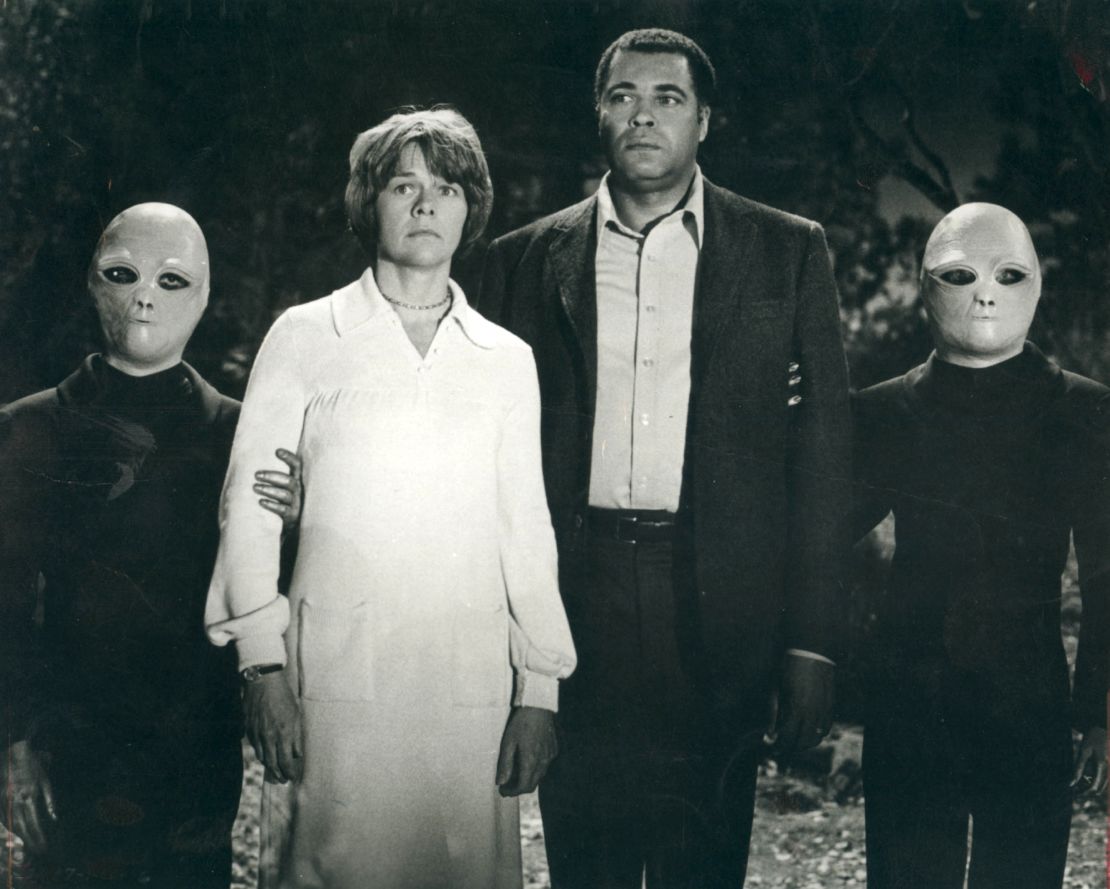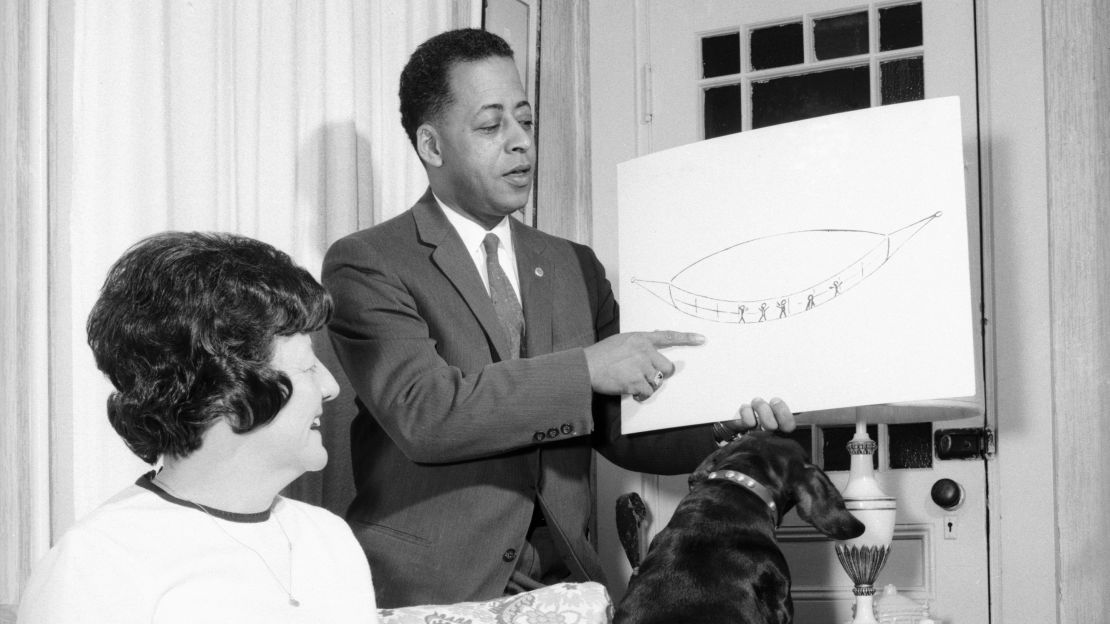Analysis: Barney and Betty Hill’s UFO abduction story may have been more about racism than aliens
Editor’s Note: A version of this story appeared in this week’s CNN’s Race Deconstructed newsletter. Sign up for free here.
There is the sound of fear in a voice: a sudden gasp, a stutter or a suppressed scream. And then there is the sound of stark terror: an adult losing all control, blubbering and gasping for breath like a kid facing their worst nightmare.
That sound of unimaginable terror is what a psychiatrist recorded when he put a man named Barney Hill under hypnosis in his office one day in 1964. Hill was a World War II vet, a big guy with a Darth Vader baritone voice and an IQ of 140.
But when the psychiatrist asked him to relive a fateful night three years earlier, he broke down in hysterical sobbing. He said he and his wife, Betty, were tracked by a mysterious light on an isolated highway in the New Hampshire mountains one night and abducted by humanoid creatures in a UFO who forced them to undergo medical examinations.
The story Hill told would become arguably the most famous UFO abductee story ever. One historian said the Hills were the “Adam and Eve of alien abduction” stories. The couple’s tale was turned into a best-selling book and a movie starring James Earl Jones, and it has provided the template for nearly every depiction of an alien encounter in pop culture since.
A new book, however, claims that the story isn’t so much about aliens as it is about race. The Hills, an interracial couple who were also civil rights activists, told a story that reflected their growing disenchantment with the slow progress of the civil rights movement, says the historian Matthew Bowman in “The Abduction of Betty and Barney Hill: Alien Encounters, Civil Rights, and the New Age in America.”
As America prepares to celebrate Halloween, Bowman’s book offers an unexpected racial dimension to the famous story. He, and others, have recast it as one of the spookiest stories about racism in American history.

Bowman said in a recent interview that Barney Hill’s struggles with racism as a Black man in the mid-20th century were a “deep part of this encounter.” Hill was an NAACP leader in New Hampshire at the time of his purported abduction; his White wife was also a civil rights activist and a social worker.
“When he is hypnotized and recovers all these memories, the language he uses is really, really colored by fear of racial persecution,” Bowman said in the recent interview. Both Hills recalled the encounter under hypnosis, but Barney Hill grew terrified reliving the event. At one point, he sobbed as he recounted the UFO closing in on him, saying, “God, what is it? … God, I’m scared!”
The Hills’ story changed the way people regarded alien encounters. Before their story, most people reported friendly encounters with UFOs and aliens. Consider the noble and sagacious alien visitor portrayed in the hit 1951 movie “The Day the Earth Stood Still.”
But the Hills added an element of horror to these stories, including details such as gray-skinned aliens with large heads and black eyes, missing periods of time, and forced medical examinations. These elements became staples in movies like “Close Encounters of the Third Kind” and TV shows like “The X-Files.”

But the racial element to the Hills’ story was always present, some noted, suggesting that it reflected their subconscious fears. The year Hill was put under hypnosis was 1964, a year when racial and Cold War tensions were simmering in the United States.
“You have a biracial couple at a time where obviously it was not easy to be a biracial couple,” Christopher Bader, a professor of sociology at California’s Chapman University, said in one interview. “Look what those aliens were: a mixture of black and white. I find that very meaningful.”
Another essayist said the couple’s story resembled a gothic horror novel. “The account fit squarely in the Western narrative tradition. With a dark night, ghostly apparitions and sexual undercurrent, it had many Victorian gothic hallmarks, and it shared the common Western folklore theme of being spirited off and ravished by an otherworldly creature,” Margalit Fox said in an essay for The New York Times.
The Hills stuck by their story despite doubts from scientists. Barney Hill died of a stroke in 1969, and Betty continued to claim that the abduction occurred. She died in 2004.
As time goes on, their story may be less known as a UFO abductee tale and more as something from a different genre: horror, reflected in movies such as “Candyman” and “Get Out” that probe racial fears.
These movies reflect an experience that Barney Hill and other people of color know well: There are times when you spark terror in people because they see you as an alien.
John Blake is the author of “More Than I Imagined: What a Black Man Discovered About the White Mother He Never Knew.”


